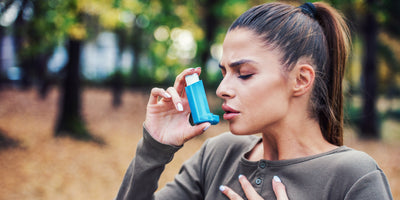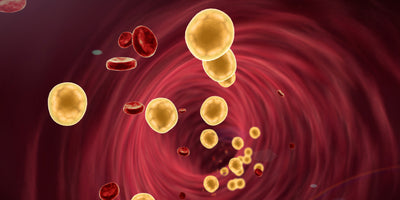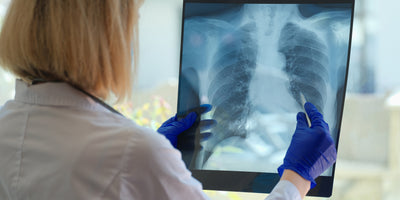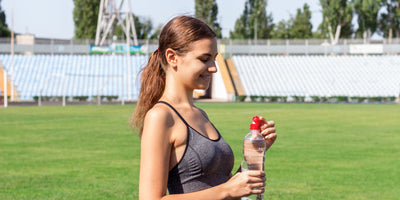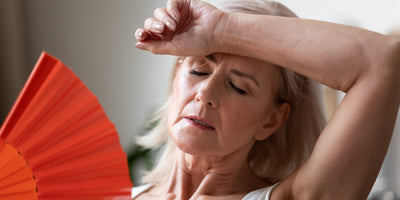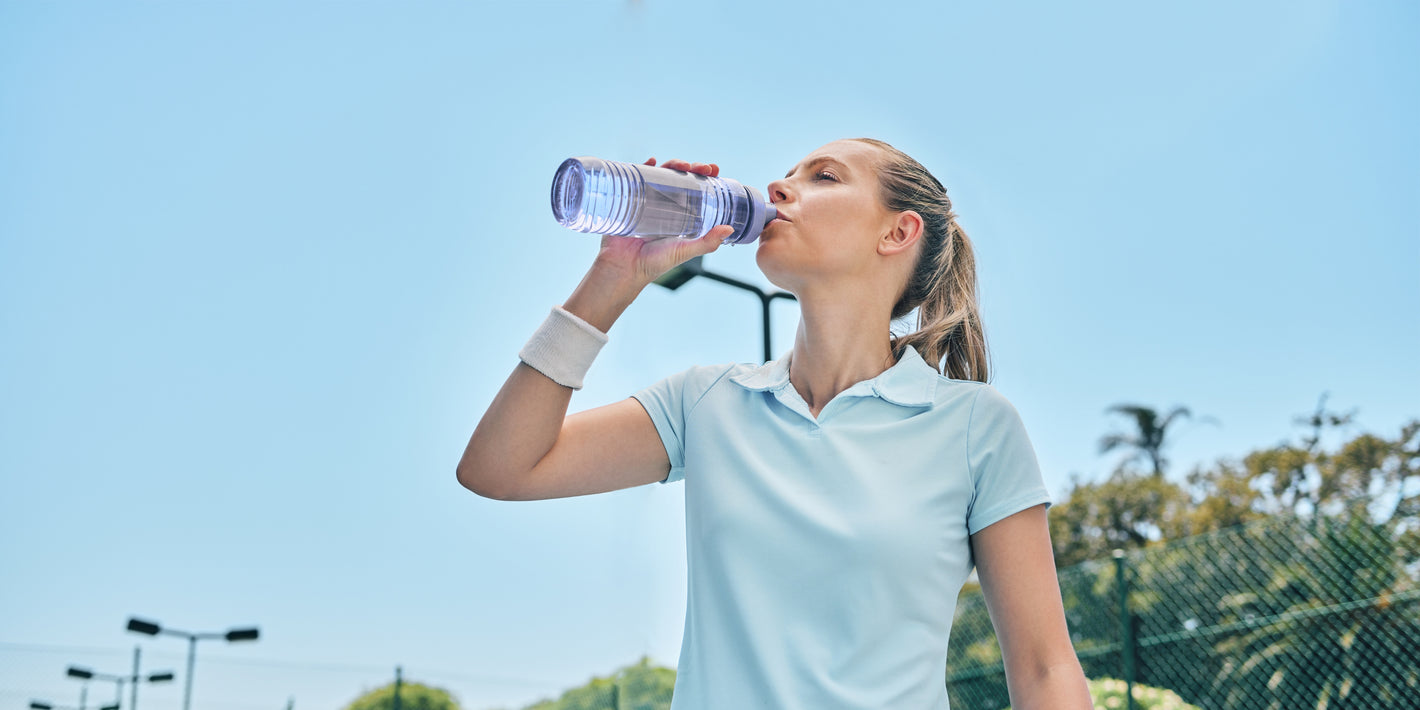
Tips and Tricks for Staying Hydrated in Hot Weather
Introduction
As the mercury rises, so does the challenge of keeping our bodies adequately hydrated. The scorching heat of summer can quickly deplete our hydration levels, leading to a range of health issues, from minor inconveniences like headaches and lethargy to severe conditions such as heatstroke. Understanding and implementing effective hydration strategies is not just a matter of comfort but of health and safety. This article delves into the essentials of hydration, offering insightful tips and scientifically backed advice to help you stay hydrated and healthy during the hot weather months.
Hydration is more than just drinking water; it's about maintaining a balance that supports every cellular process in our bodies. In hot weather, this balance is easily disrupted by increased sweating, which not only loses water but essential salts and minerals. Whether you're an outdoor enthusiast, a busy professional, or ensuring the well-being of your family, this guide provides comprehensive insights into beating the heat by staying hydrated.
Understanding Hydration: The Science Behind Staying Hydrated in Hot Weather

The Essential Role of Water in Our Bodies
Water is the cornerstone of life, playing a pivotal role in the functioning of our bodies. It aids in digestion, absorption, circulation, and even excretion. In hot weather, our bodies rely heavily on the cooling effect of water, evaporated as sweat, to regulate body temperature. However, this necessary cooling mechanism also accelerates the loss of fluids, making it imperative to understand and compensate for this increased demand.
Combatting Dehydration: Recognising the Risks
Dehydration occurs when your body loses more fluid than it takes in. Symptoms range from thirst, dry mouth, and fatigue to more severe signs like dizziness, confusion, and rapid heartbeat. The risks associated with dehydration can be severe, particularly in extreme temperatures, highlighting the need for proactive hydration strategies. By recognising these risks and responding appropriately, we can protect our health and enhance our ability to withstand the heat.
Hydration Hacks: Creative Ways to Increase Your Water Intake
Infusing Flavor and Fun into Your Hydration Routine
Drinking water doesn't have to be a monotonous task. Infusing water with fruits, vegetables, or herbs not only enhances its flavor but can also increase your motivation to drink more. Try combinations like cucumber-mint, lemon-basil, or strawberry-kiwi to add a refreshing twist to your hydration efforts. Additionally, investing in a durable, visually appealing water bottle can motivate you to keep it filled and close at hand throughout the day.
Leveraging Technology for Hydration Reminders
In our busy lives, it's easy to forget to pause and take a sip of water. Thankfully, technology can assist in reminding us to stay hydrated. Numerous apps and smart bottles are designed to track your water intake and remind you to drink water regularly. Setting reminders on your phone or using a smartwatch can also serve as a simple yet effective strategy to ensure you're meeting your daily hydration goals.
The Role of Diet in Hydration: Foods That Help Keep You Hydrated
Hydrating Through Your Meals
Not all hydration comes from drinking water. Many fruits and vegetables boast a high water content, contributing significantly to your daily fluid intake. Watermelon, strawberries, cucumbers, and lettuce are among the top choices for hydrating foods. Incorporating these into your diet, especially during the warmer months, can help maintain hydration and provide a nutritious boost.
Balancing Meals for Optimal Hydration
While hydrating foods are an excellent addition to your diet, balancing them with adequate water intake is essential. Salty and high-protein foods, for example, can increase your need for water. Being mindful of this balance can help optimise your hydration levels, ensuring that your diet supports your body's needs, especially in hot weather.
Recognising Dehydration: Signs, Symptoms, and Prevention
Identifying Early Signs of Dehydration
Early detection of dehydration can prevent many of its adverse effects. Mild symptoms include thirst, dry lips, and decreased urine output, which are the body's initial signals for needing more fluids. As dehydration progresses, symptoms can become more severe, such as headache, dizziness, and extreme fatigue. Understanding these signs is crucial for taking immediate action to rehydrate and avoid further health complications.
Strategies for Preventing Dehydration
Prevention is the best strategy when combating dehydration, especially in hot weather. Consistently drinking water throughout the day, rather than waiting until you're thirsty, is key. Additionally, wearing lightweight, breathable clothing and limiting exposure to the sun during peak hours can reduce sweating and fluid loss. Planning ahead by carrying a water bottle when outdoors and choosing hydrating foods can further safeguard against dehydration.
Hydration for Different Age Groups and Activities
Tailoring Hydration to Individual Needs
Hydration needs can vary significantly across different age groups and activity levels. Children and the elderly are particularly vulnerable to dehydration and require more attention to their hydration status. Athletes and individuals engaged in physical labor outdoors need to replenish fluids regularly to compensate for the increased loss from sweating. Understanding these specific needs is essential for effective hydration.
Customising Hydration Strategies
For children, incorporating hydrating snacks and flavored waters can encourage more frequent drinking. Older adults should be mindful of their fluid intake, as the sense of thirst diminishes with age. For active individuals, sports drinks with electrolytes can be beneficial in maintaining hydration and replacing lost minerals during intense activities or workouts.
The Impact of Climate on Hydration Strategies
Adjusting Hydration for Different Climates
The climate you're in significantly affects your hydration needs. In humid climates, sweat doesn't evaporate as efficiently, hindering the body's cooling process and increasing the need for fluids. Dry climates can lead to insensible water loss, as moisture evaporates from your skin and breath without noticeable sweating. Recognising these differences is crucial for adjusting your hydration approach accordingly.
Hydration Tips for Varied Environmental Conditions
In humid environments, increase your water intake and ensure electrolyte balance to compensate for sweat loss. In dry areas, drink regularly even if you're not sweating profusely, as you're still losing moisture. Regardless of the climate, monitoring the color of your urine can provide a quick hydration status check; aim for a light, straw-colored hue.
Hydration Myths Busted: Separating Fact from Fiction About Drinking Water
Debunking Common Hydration Myths
Myths surrounding hydration can lead to confusion about how best to maintain fluid balance. One common myth is that everyone needs exactly eight glasses of water a day. In reality, individual needs vary based on factors like age, weight, climate, and activity level. Another myth is that caffeinated beverages always dehydrate you. While caffeine has diuretic properties, moderate consumption doesn't typically lead to dehydration and can contribute to your daily fluid intake.
Understanding the Facts for Proper Hydration
Staying informed about hydration helps you make healthier choices. For instance, drinking water before feeling thirsty can prevent dehydration, as thirst is already a sign of being dehydrated. Additionally, not all fluids hydrate equally; water is the most effective hydrator, while drinks high in sugars can lead to quicker fluid loss.
The Importance of Electrolytes in Hot Weather Hydration
Role and Replenishment of Electrolytes
Electrolytes, including sodium, potassium, and magnesium, are essential for regulating hydration and nerve and muscle function. During hot weather, electrolyte loss through sweat can lead to imbalance and dehydration. Replenishing these lost electrolytes is crucial, especially after prolonged exposure to heat or physical activity.
Sources of Electrolytes for Optimal Hydration
While sports drinks are a popular source of electrolytes, they often come with high sugar content. Alternatives include coconut water, electrolyte-infused waters, or making your own electrolyte drink with a balance of salt, sugar, and water. Including electrolyte-rich foods like bananas, dairy products, and leafy greens in your diet can also support hydration and electrolyte balance.
Staying Hydrated on the Go: Tips for Travelers and Outdoor Enthusiasts
Hydration Strategies for Active Lifestyles
Staying hydrated while traveling or engaging in outdoor activities requires planning and adaptability. For travelers, carrying a reusable water bottle ensures access to water throughout the day. When planning outdoor adventures, consider the climate and intensity of the activity to adjust your water intake accordingly. For instance, hiking in high altitudes or in hot climates demands more frequent hydration stops.
Innovative Hydration Solutions for the Outdoors
For those who love the outdoors, hydration packs are an efficient way to carry and consume water without interrupting your activity. Additionally, portable water filters or purifying tablets are essential for ensuring access to safe drinking water during camping trips or in remote locations. Always have a hydration plan in place, including locating water sources and carrying sufficient supplies.
Building a Daily Hydration Routine: Strategies for Making Hydration a Habit
Creating a Consistent Hydration Practice
Building a hydration routine that fits seamlessly into your daily life can significantly improve your overall health. Start by setting specific goals for water intake and using reminders to drink water at regular intervals. Integrating water consumption into your daily rituals—such as drinking a full glass of water upon waking and before each meal—can help establish lasting hydration habits.
Leveraging Tools and Techniques for Enhanced Hydration
Technology can serve as a powerful ally in maintaining hydration. Apps that track your water intake and send reminder notifications can be incredibly helpful. Furthermore, understanding your body's hydration cues, such as monitoring the color of your urine, allows you to adjust your water intake as needed dynamically. Investing in a high-quality water bottle that you enjoy using can also encourage more frequent hydration throughout the day.
Summary
Understanding Hydration- Water plays a crucial role in bodily functions, especially in regulating temperature.
- Dehydration can lead to serious health issues, making it essential to recognise early signs.
- Infuse water with fruits or herbs to enhance flavor and encourage drinking.
- Use technology, such as apps or smart bottles, to remind you to stay hydrated.
- Consuming foods high in water content, like fruits and vegetables, aids in hydration.
- Balance meals to support water intake, considering the dehydrating effects of certain foods.
- Early signs include thirst, dry lips, and decreased urine output.
- Prevention includes drinking water regularly, not just when thirsty, and wearing appropriate clothing.
- Children, the elderly, and athletes have unique hydration needs.
- Tailor hydration strategies to match individual needs and activity levels.
- Humid and dry climates affect how much and how often you need to drink.
- Adjust your water intake based on environmental conditions.
- The "eight glasses a day" rule is not one-size-fits-all; hydration needs vary.
- Caffeinated beverages in moderation do not necessarily lead to dehydration.
- Electrolytes are vital for hydration and preventing imbalance.
- Replenish electrolytes through foods or drinks, especially after sweating.
- Carry a reusable water bottle and plan for water access during travel or outdoor activities.
- Consider hydration packs and portable water purifiers for convenience and safety.
- Set goals and use reminders to develop a consistent hydration habit.
- Monitor your body's hydration cues, like urine color, to adjust water intake as needed.

